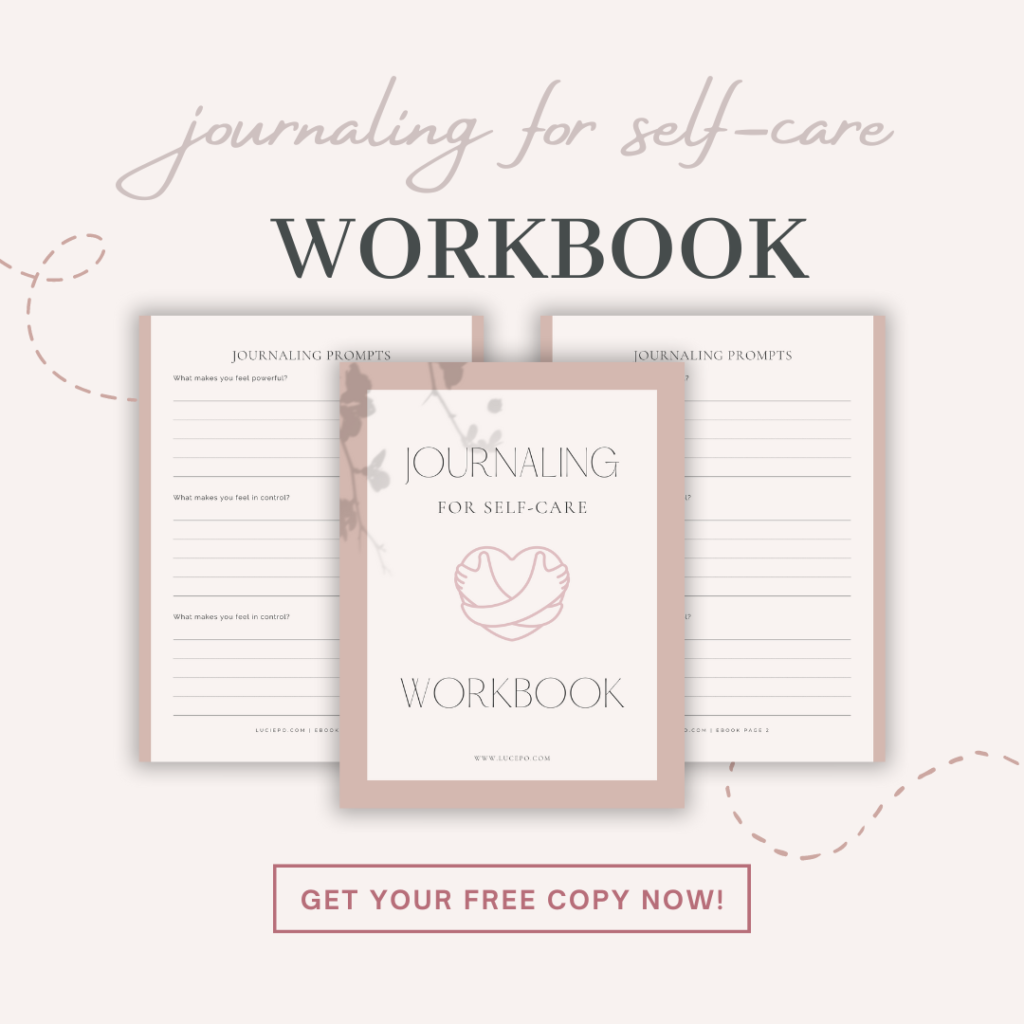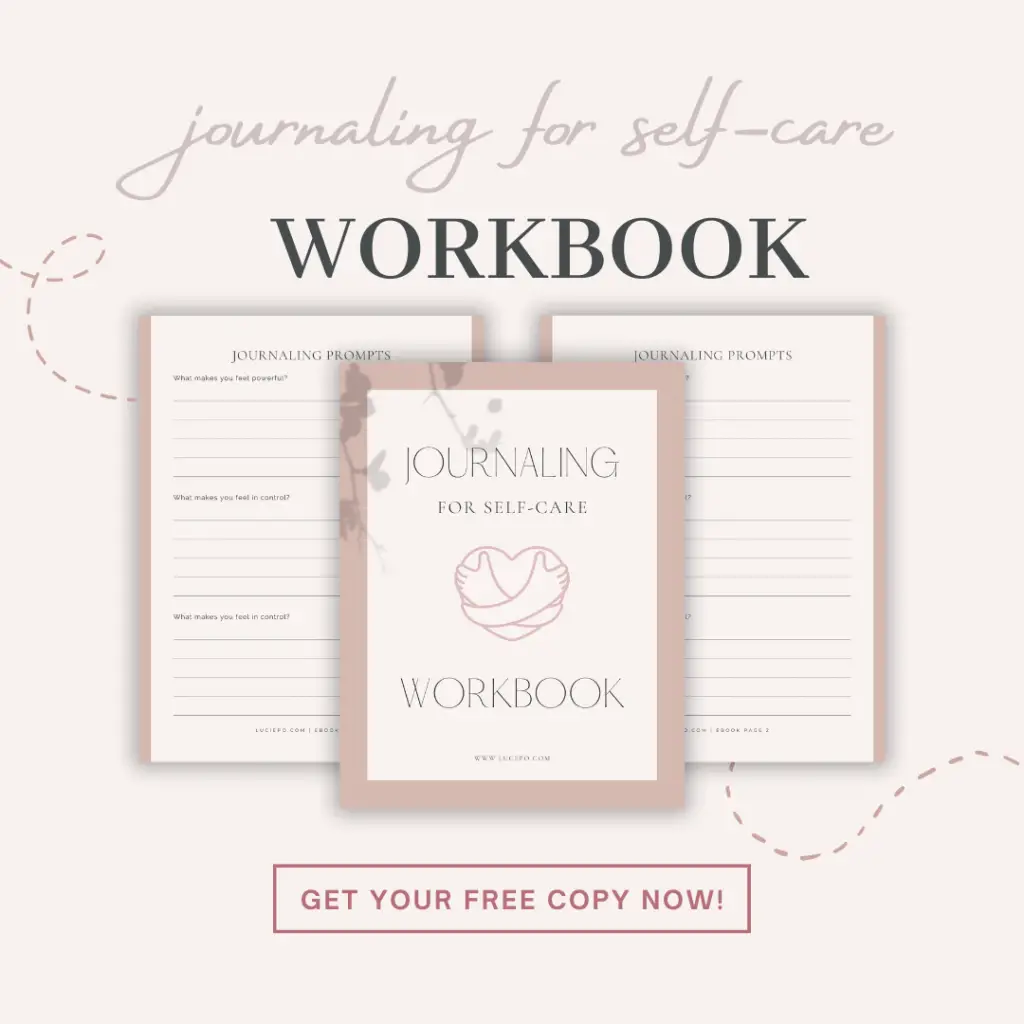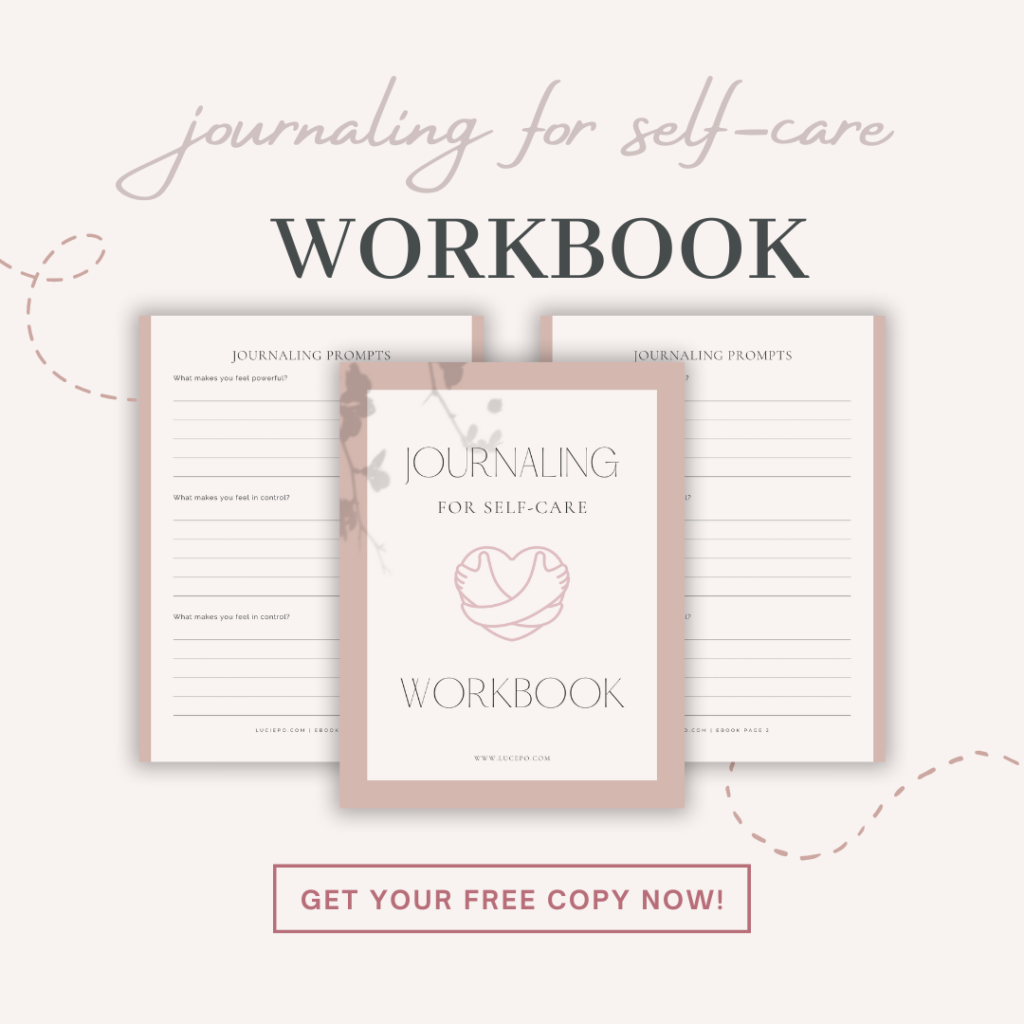
15 Inspiring Personal Growth Journal Prompts for Self-Reflection
Want to know the best life-changing personal growth journal prompts for self-reflection? These are journal prompts for personal growth that you need to try!
When it comes to personal growth and development, journaling is a powerful tool for self-exploration. Invest some time into exploring yourself and find new perspectives with these 15 daily journal prompts for personal growth.
From this blog post, you will get a deeper understanding of who you are, what your true essence is, and you will get to know yourself better.
Ready to embark on a journey of self-discovery and personal growth? Look no further than this list of these 15 powerful journal prompts!

How do you describe self growth?
Self growth, or personal development, is the practice of taking responsibility for your own development and growth. It involves deliberately learning new skills, knowledge and attitude to help you reach your desired level of success in areas such as relationships, career, health or spiritual life. Self growth is a process that requires self awareness and commitment to reach your goals – it’s a journey of self-discovery!
What is your personal growth goal?
When beginning your journey of self growth, it’s important to set a clear goal. By setting a goal, you’ll have something to focus on as your motivation for growth and development. Ask yourself: what area of your life do you want to improve or understand better? What skill do you want to learn or master? Write down this goal clearly so that you can keep track of it throughout your journey.
What is a personal growth journal?
A personal growth journal is a tool people use to reflect and make changes in their lives. It contains entries that document those changes—sometimes over time, while other times more quickly. Journaling can help you understand your thoughts and feelings better, making it an invaluable tool on your journey of self-discovery and personal development.
How do I start a personal growth journal?
Starting a personal growth journal is a wonderful way to get to know yourself better. Begin by mapping out your goals, setting a timeline, and being accountable to yourself. Once you have established this structure, start writing! You can use regular notebooks or create an online document – the key is consistency. Set some time aside each day to write down your thoughts and feelings as you seek to reflect on yourself and grow.
How To Use Deep Journal Prompts For Self-Growth
Writing in a personal growth journal can be a powerful tool for self-exploration. Personal growth journal prompts that can be explored include learning how to set achievable goals, identifying and celebrating accomplishments, noting challenges encountered and explore how they were solved, reflecting on your emotions with gratitude and positive affirmations, writing down ideas of what you want to do next or different approaches to take in reaction to similar situations, and exploring new perspectives.
A personal growth journal is a powerful tool for reflecting on experiences, exploring emotions, and deepening your sense of self-awareness. When used with thoughtful journal writing prompts, it can help you take steps forward in your personal development journey. Popular topics of reflection may include mindfulness, gratitude, relationships, career, purpose, and more.
15 Inspiring Personal Growth Journal Prompts for Self-Exploration:
1. What have I been putting off or procrastinating that I need to address today?
Writing down what you’ve been procrastinating can provide helpful insight into why you haven’t been taking action, and it can give you the boost of motivation to make progress. Reflecting on this question in your personal growth journal may uncover patterns of behavior that have been holding you back, such as low self-confidence or a fear of failure. Use this knowledge to develop strategies to break the cycle and take your goals one step closer.
2. What new skills am I ready and willing to acquire to reach my goals?
In order to move closer to achieving our goals, we may sometimes need to acquire new items or a new set of skills. Reflecting on your own skills and abilities can help identify what type of knowledge you need to acquire in order to reach your goals. Take this time in your personal growth journal today to reflect on what new skills you are ready and willing to learn that can help you get where you want to be.
3. What ideas and goals have I been holding onto that I need to let go of?
This can be a powerful tool in personal growth. There are plenty of ideas and goals that you may want to achieve, but they may not necessarily be the right ones for you at this moment in time. Take some time to reflect and consider what ideas or goals no longer fit into where your life is headed, so that you can remove those roadblocks and focus on the future instead.
4. What am I afraid of and what can I do to face that fear?
Fear is a normal and natural part of life, but it can also be a major obstacle for growth. As you write in your personal growth journal, take the time to think about any emotional blocks that you may be facing in terms of fear or worry. Once you’ve identified what those fears are, use your journal writing as a way to explore feelings and consciously move towards facing them. Begin by asking yourself questions such as “what am I afraid of” and “what can I do to face that fear?” Writing down your thoughts and feelings can give you an outlet to better understand your worries, while at the same time coming up with solutions that will help you work through them.
5. How can I become better at taking initiative and taking action?
Taking initiative and taking action towards your goals is important for achieving success. The first step to becoming better at this is to identify what causes you to hesitate or avoid a task. Once you’ve identified these obstacles, brainstorm ways that you can increase your motivation and overcome them. For example, set achievable goals with a timeline attached so that it will be easier for you to stay on track. Additionally, find someone who can be your accountability partner who will help keep you motivated and encourage you throughout your journey. Finally, reward yourself for completing tasks and setting realistic expectations in order to foster a sense of accomplishment and pride in reaching milestones.
6. What can I do to become more organized and motivated?
In order to become more organized and motivated, it helps to create a daily plan for yourself. This could include setting weekly goals and breaking them down into smaller tasks that can be completed each day. Additionally, establishing a routine and sticking to it helps you stay on track with completing your tasks. It may also help to declutter and remove distractions so that you can focus on what’s important. Lastly, addressing any underlying stressors or personal issues can help free up mental energy so that you feel ready to tackle the tasks ahead.
7. How can I create a better balance between the activities that energize me and the ones that drain me?
A great way to create a better balance between energizing and draining activities is to create a list of those that fit into each category. You can then prioritize the energizing activities and make sure you schedule them in ahead of time. It’s also important to be mindful about how much energy you expend on each activity so that it does not become too draining. For example, if attending networking events draw upon your emotions and social skills, try dedicating some time afterwards for yourself to recharge. Additionally, look for ways to break up draining tasks with fun or energizing activities throughout the day.
8. What can I do to become more confident in my decisions and actions?
Building confidence requires getting to know yourself better and reflecting on your past successes and failures. Start by writing down all of the skills, strengths, and positive traits you possess. Establish habits that will boost your confidence such as setting achievable goals, taking risks within a safe environment, practicing self-care activities and developing new skills. Lastly, strive to challenge yourself intellectually by expanding your knowledge on subjects related to your growth areas. Doing so can help build self-confidence when tackling new tasks.
9. What qualities and values do I need to develop for greater success?
Building confidence requires getting to know yourself better and reflecting on your past successes and failures. Start by writing down all of the skills, strengths, and positive traits you possess. Establish habits that will boost your confidence such as setting achievable goals, taking risks within a safe environment, practicing self-care activities and developing new skills. Lastly, strive to challenge yourself intellectually by expanding your knowledge on subjects related to your growth areas. Doing so can help build self-confidence when tackling new tasks.
10. What can I do to become more resilient and better manage my emotions?
Resilience is crucial for success and emotional well-being. When you identify the sources of your stress or negative emotions, it can help you gain control over them and make proactive decisions in order to better manage yourself. To improve your resilience, start by understanding the components of emotional regulation such as cognitive flexibility, impulse control, self-awareness, and emotional regulation. Then create a plan to work on these areas with strategies like mindfulness practices, journaling what you’re feeling and why, tracking triggers that lead to emotional difficulty or distress, and reaching out for help when needed.
11. What does my ideal life look like?
Take some time to envision what your ideal life looks like. What type of job do you have? Who are the people you surround yourself with? Where do you live? Try to map out the details of your life, from day-to-day activities and hobbies, to dreams and aspirations. Describe how it feels to be living in this perfect world that you’ve envisioned for yourself.
12. Who do I want to become and how can I get there?
Take a moment to visualise yourself in the shoes of the successful, confident person you want to become. Making a list can help you break your lofty goals into achievable steps. Ask yourself questions like: What accomplishments do I need to make in order to become who I want to be? What kind of lifestyle do I want to lead? How will I get there? Write down every step that comes to mind, no matter how small or seemingly insignificant.
13. What are five things that make me really happy?
Reflect on the things in your life that make you the happiest and bring joy every day! Think about spending time with family or friends, hobbies or activities you do for fun, accomplishing something meaningful, or just taking a few moments to appreciate small details like a beautiful sunset. Writing down these five things can help create a go-to list when facing challenges and negative emotions.
14. What values guide my decisions and behavior?
Analyzing your values can help you clarify and prioritize personal goals that align with what is truly important to you. Take time to reflect on the behavior, decisions, and life choices that have made for a more fulfilling life. Ask yourself – what are the core values that I have internalized throughout my life and how do they guide my current lifestyle? Consider writing down these values and how your choices align with them to help you stay focused on achieving your big-picture goals.
15. How have I evolved over the past year?
Reflect on the transformations you have been through in the past year. What have you learned, and how have you grown? Think about your relationships, career goals, lifestyle changes, personal beliefs or outlooks – what events and experiences shaped who you are today? Consider the decisions that made for a more meaningful life and list out lessons that could serve as guiding principles.
5 Common Myths About Personal Growth Journaling
Are you hesitant to start a journaling practice for personal growth? You’re not alone. There are many misconceptions about journaling that may be holding you back. Let’s explore and debunk five of the most common myths about journaling for personal growth.
Myth #1: You have to write every day
One of the most common myths about personal growth journaling is that you have to write every day. This misconception can make people feel overwhelmed or pressured to write, leading them to avoid journaling altogether. While it’s true that some people choose to write every day, it’s not a requirement for a successful journaling practice.
The key to journaling for personal growth is consistency, not frequency. Whether you choose to write every day, once a week, or whenever you feel inspired, the most important thing is to make journaling a habit. By setting aside designated time for reflection and self-discovery, you can begin to reap the benefits of journaling without feeling stressed or overwhelmed.
In fact, forcing yourself to write every day can actually be counterproductive. Instead of focusing on the quality of your thoughts and reflections, you may find yourself fixating on meeting a daily quota. This can lead to shallow or repetitive writing, rather than deep, meaningful insights.
Ultimately, the frequency of your journaling practice should be tailored to your own needs and preferences. Don’t let the myth that you have to write every day hold you back from beginning your own journaling journey.
Myth #2: You need to write a certain way
In addition to feeling pressure to write every day, many people also believe that they need to write a certain way in order to have a successful journaling practice. This is another myth that can hold people back from starting or continuing their personal growth journaling journey.
The truth is that there are no rules when it comes to how you write in your journal. Some people prefer to write in full sentences and paragraphs, while others jot down bullet points or make lists. Some write in a stream-of-consciousness style, while others prefer to reflect on specific prompts or questions.
The most important thing is that you find a writing style that works for you and allows you to effectively process and reflect on your thoughts and experiences. Don’t worry about what others might think of your writing or whether it sounds “perfect.” Your journal is a private space for you to explore your inner world and express yourself in whatever way feels natural.
With that said, it’s important to note that journaling can also be a great way to improve your writing skills. As you continue to write and reflect, you may find that your writing becomes clearer, more concise, and more engaging. So while you don’t need to write a certain way, don’t be afraid to experiment and try new approaches to your journaling practice.

Myth #3: Journaling is only for writers
While it’s true that journaling can be beneficial for writers, the practice is not exclusive to them. Journaling is a tool that can be utilized by anyone looking to improve their personal growth, whether they consider themselves a writer or not. In fact, many successful people from various walks of life credit their success to journaling.
Journaling allows for introspection and reflection, which can help individuals gain clarity and perspective on various aspects of their life. Whether it’s work-related stress or personal relationships, journaling provides a safe and private space to explore and process emotions and experiences.
Myth #4: Journaling is a solo activity
With that said, personal growth journaling can seem like a solitary activity. After all, it does involve writing down your innermost thoughts and feelings. However, the idea that journaling is a purely solo activity is a myth. In fact, journaling can be a great way to connect with others. By sharing your writing with trusted friends or a therapist, you can gain new perspectives on your own experiences and insights. In addition, there are many online communities and forums dedicated to journaling where you can connect with other writers and share your work.
But even if you prefer to keep your writing private, there are still ways to make journaling a more social activity. You can attend a writing workshop or join a writer’s group where you can share your writing and receive feedback. This can help you improve your writing skills and gain confidence in your abilities.
So, while it’s true that journaling can be a deeply personal and introspective activity, it doesn’t have to be a solitary one. Whether you choose to share your writing with others or keep it private, journaling can be a powerful tool for personal growth and self-discovery.
Myth #5: Journaling is only for resolving problems
Moving on to our next myth, let’s explore the idea that journaling is only meant for resolving problems. While it’s true that journaling can be a helpful tool to work through difficult emotions or situations, it’s not the only reason to pick up a pen and paper.
In fact, journaling can be a comprehensive tool for personal growth that helps you track progress, cultivate gratitude, and gain a deeper understanding of your thoughts and behaviors. Journaling can also be a means of self-expression, allowing you to tap into your creativity and develop your writing skills.
Rather than solely using journaling to solve problems, consider using it as a daily practice for reflection and introspection. You don’t need to wait until you’re facing a challenging situation to start putting your thoughts down on paper. And you don’t need to write a novel each time you open your journal. Instead, think of it as a place to capture your everyday experiences, insights, and observations.
This post was all about the most inspiring personal growth journal prompts to help you rediscover yourself.
As you embark on your journey of self-reflection and personal growth, remind yourself that it is okay to make mistakes or be unsure. Growth often comes from failures and frustrations, so don’t be afraid to make tweaks here and there as you learn more about yourself and develop new skills. Lastly, take caution when being hard on yourself—instead, strive for a healthy balance between being productive and achieving your goals, while also taking the time to practice self-care and cultivate an attitude of gratitude.
You might also like:
10 Most Popular Gratitude Activities For Adults – Lucie Po
20 + 20 Inspirational February Quotes And Affirmations – Lucie Po
Like it? Share it on Pinterest!









